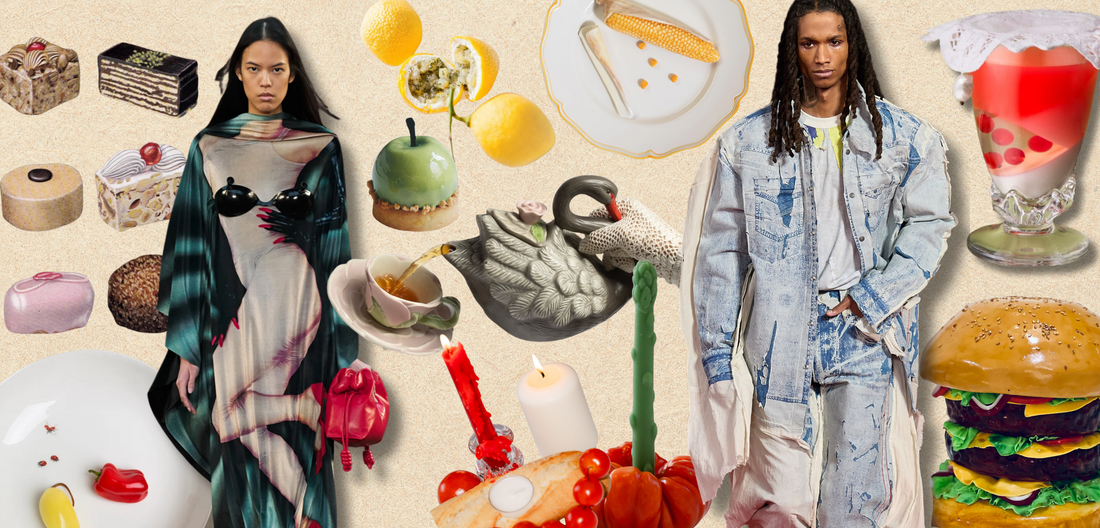The Visual Feast of Trompe L'Oeil: Influencing Food and Drink
01.08.25
Step into a world where perception meets imagination—welcome to the captivating realm of trompe l'oeil. This incredible artistic technique, which translates to "deceive the eye," has left an indelible mark on various creative disciplines, from art and design to culinary wonders and mixology delights. Far beyond simple optical illusions, trompe l'oeil invites us to experience depth and dimension in ways that challenge our senses and expectations. In this blog post, we'll explore how artists, designers, chefs, and mixologists have embraced this enchanting style, transforming everyday experiences into extraordinary visual feasts that leave us both intrigued and inspired. Get ready to discover the playful magic of trompe l'oeil and its ripple effect across creativity.
 Photograph by Mari Maeda and Yuji Oboshi. Set design by Laila Gohar.
Photograph by Mari Maeda and Yuji Oboshi. Set design by Laila Gohar.
A Brief History of Trompe L'Oeil

Andrea Pozzo
Trompe L'Oeil: In The Wild
Culinary artists have embraced the principles of Trompe L'Oeil to elevate dining experiences. By creatively manipulating ingredients to mimic objects or scenes, these chefs engage diners’ senses in unexpected ways. Here are some cool examples of how chefs are making our plates not just food, but edible masterpieces.
1. Edible Illusions
Chefs are playing a delicious game of "gotcha" in the kitchen, using tricksy techniques like molecular gastronomy to serve up a visual feast that's not what it seems. Picture biting into what looks like a juicy apple, but surprise! It's cake. Culinary wizards have cooked up quite a reputation with these eye-fooling feats.

celine.marciano.cakedesigner
 @olivia.haim
@olivia.haim
 Gohar World
Gohar World
2. Thematic Presentation
Restaurants have begun to employ Trompe L'Oeil in their plating techniques, where food is artfully arranged on the plate to resemble familiar objects. Imagine diving into a plate of what appears to be a sunny-side-up egg, only to discover it’s actually a perfectly poached egg sitting on a fluffy bed of whipped potatoes or disguised as a dessert that could fool even the snobbiest of breakfast connoisseurs.

@mercredibiscuiterie | @quaidesetoiles33
 @emil.obel
@emil.obel
3. Cocktails with a Twist
Bartenders are hopping on the visual illusion train too, whipping up cocktails that fool the eye. They're serving concoctions in glasses that mimic mundane items, or using savvy layering skills to create a rainbow in your rocks glass.
 @frandelico | @david_weimann
@frandelico | @david_weimann
The Impact of Trompe L'Oeil
Feast Your Eyes
Nothing captures the invitation to "join us for dinner" quite like a visually stunning spread that has everyone reaching for their phones. Restaurants are elevating dining into an art form, where each dish is not just a meal but a visual experience. It’s all about creating moments that you'll want to share. So, grab your camera and get ready—because in today's world, if it’s not on social media, did it even happen?
NY Times
Optical Illusions






